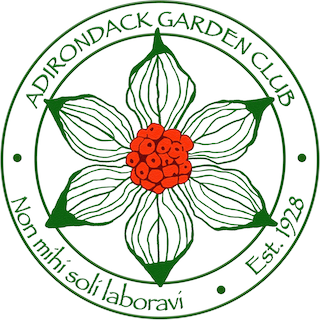Caterpillars vouch for success of Adirondack Garden Club native plant project
KEENE—The Adirondack Garden Club’s native plant garden at Families First on Water Street in Elizabethtown is in only its first year, but the number of Monarch caterpillars (and others) calling the garden plot home this season are a clear indication of the project’s success.
“Because Monarchs are a threatened species, projects such as this are vitally important for their summer habitat, and ultimately their survival,” said AGC Co-President Lyn Flynn.
The project began last autumn at Families First, a countywide agency that works with families facing mental health challenges. Garden club members sketched in the garden beds and walkways, prepared the soil and put down landscape cloth. At the same time, they planted a few perennial rhizomes and true bulbs for spring color. However, most of the plants—many of which were propagated by Stephanie Reger and Nancy Budd over the winter—went in this spring.
Selected plants included columbine, yarrow, echinacea, anise hyssop, wild bergamot, New England aster, lupine and Canada windflower. These native plants are helping provide a pollinator haven in Elizabethtown.
Aside from the beauty of the flowering pollinator plants, one plant in particular demonstrates the eco-benefit of a native plant garden: milkweed (Asclepias), which is both where Monarch butterflies lay their eggs, and the only host plant for the Monarch caterpillars that emerge and feed exclusively on the leaves. In recent weeks, AGC members were thrilled to see the number of healthy Monarch caterpillars on the milkweed in the Families First garden. Those caterpillars will pupate on surrounding or nearby nectar or native plants, and the adults that emerge may live only a few weeks—except for those that migrate south and overwinter in Mexico.
Other species have been identified as well, including Tussock Moth Caterpillar, which in its way demonstrates the complexity of the ecosystem. Tussocks are voracious feeders, and dine on the milkweed that’s so essential for Monarchs.
But they are native to the region and represent the balance that is essential to the overall habitat. “A diverse ecosystem is a healthy ecosystem,” AGC Conservation Chair Nancy Budd said.
The club will continue to maintain the Family First gardens, weeding and watering when necessary and ensuring the beauty and health of the site.
